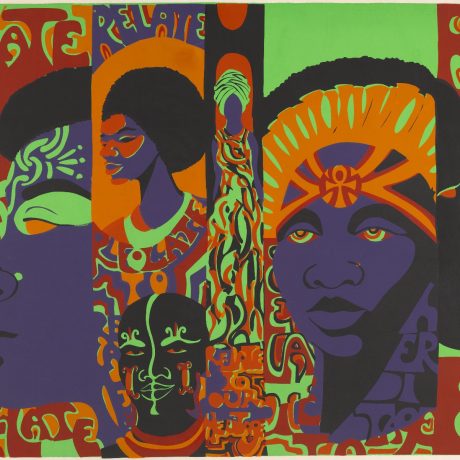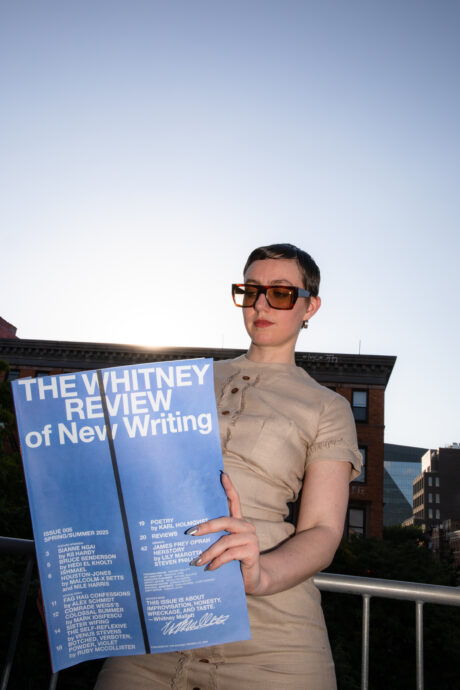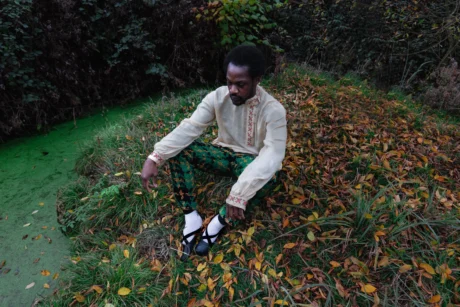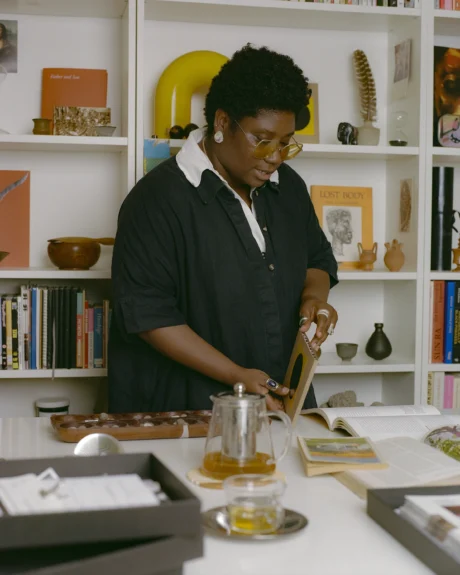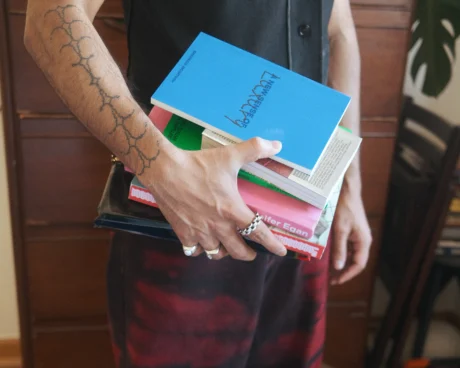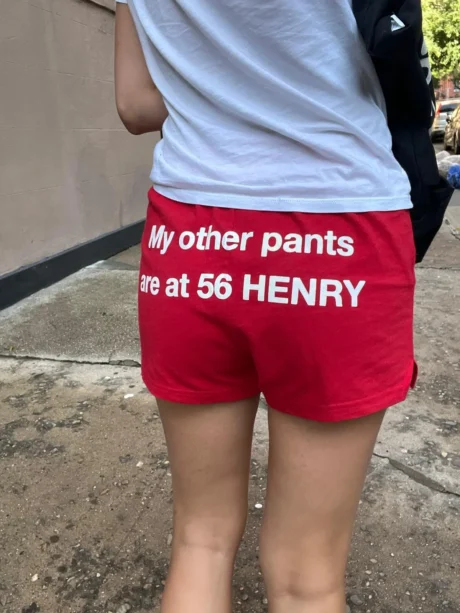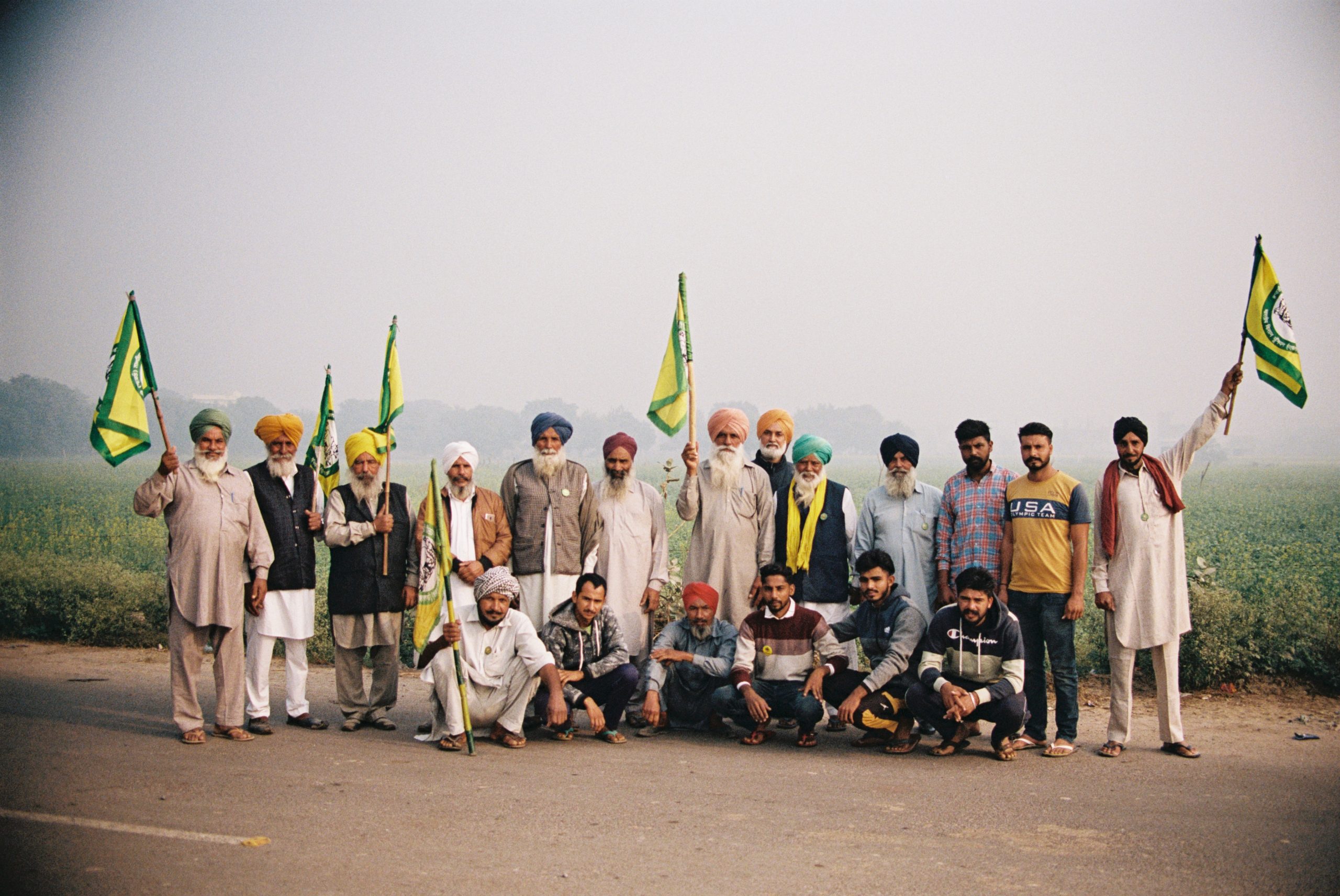
After Hark1karan landed at Delhi airport in 2021, he was overwhelmed by the Farmers Protest scenes he witnessed driving to Punjab. Indian farmers and allies were camped up along the street as far as the eye could see. “Okay, I’ve got film: I’ll just come back in a week,” thought the South London photographer, eager to document the event. “So I came back with my uncle and shot the whole thing in 24 hours and that was it.”
The result is the photographer’s second photobook Kisaan,
named after the Punjabi word for ‘farmer’. With 121 images shot on film, the self-published volume offers a thorough introspection of the daily lives of the protesters over the course of the year. “My photos take you into my where people were staying and what they were doing,” he says. “This is what a protest can look like.”
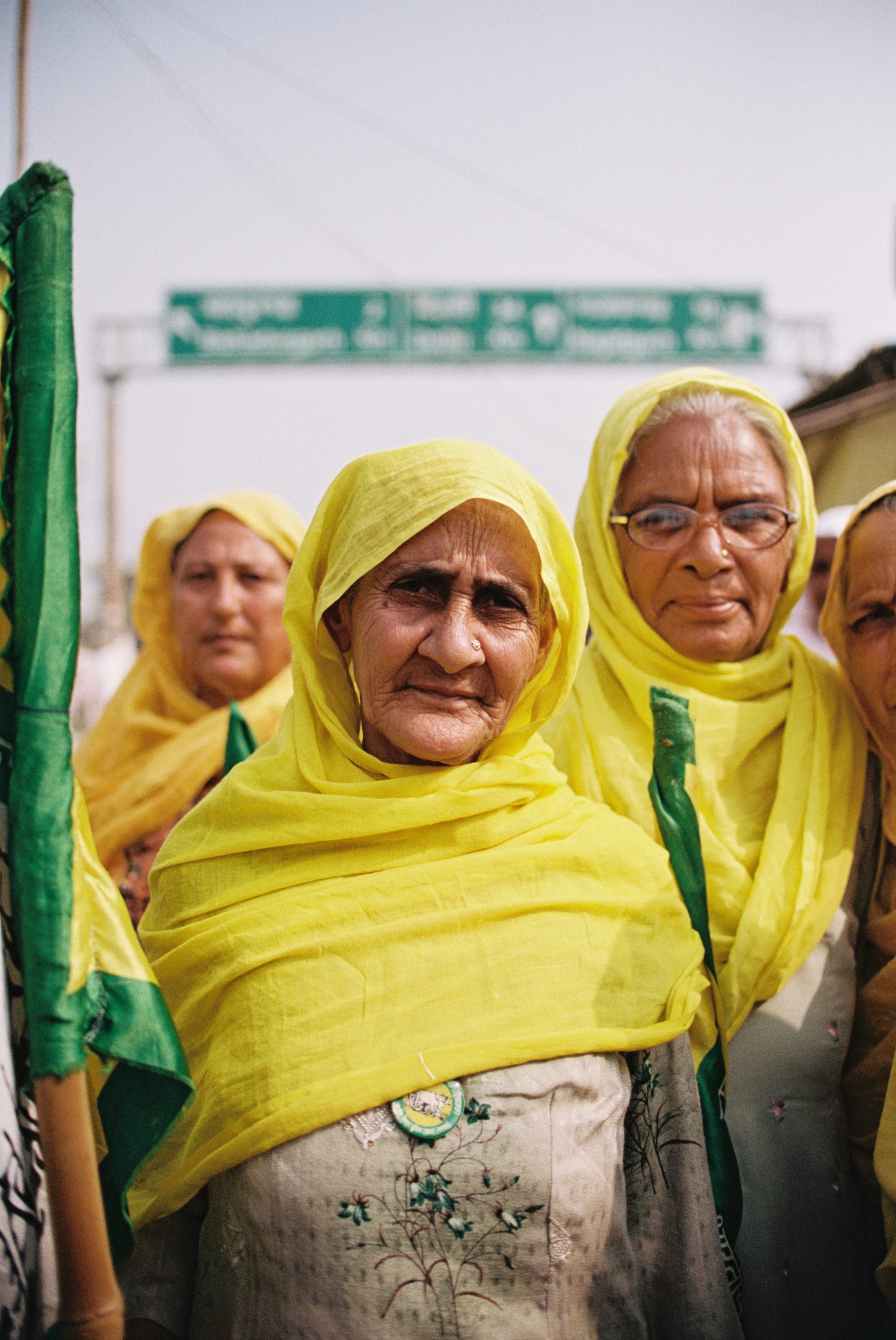
The farmers’ protest in India was the largest protest in history, a reaction to the three farmer laws which were being drafted by Prime Minister Modi’s right-wing BJP government. The laws would have been detrimental to farmers’ livelihoods as well as affecting the price of food in India by effectively forcing a corporate monopoly on food production. What began as a smaller protest in Punjab in June 2020 quickly amassed 250 million protesters across India, all campaigning to overturn the laws as they came into action in late September.
“What began as a smaller protest in Punjab in June 2020 quickly amassed 250 million protesters across India”
With half of India’s workforce (around 58% of the 1.3 billion population) being farmers, it’s not hard to see why so many came together to fight the oppressive laws for an entire year, despite surprisingly little media coverage from western news outlets. “When Rihanna just shared a tweet, that really helped”, explains Hark1karan, which “burst a bubble and [made] it go bigger”.
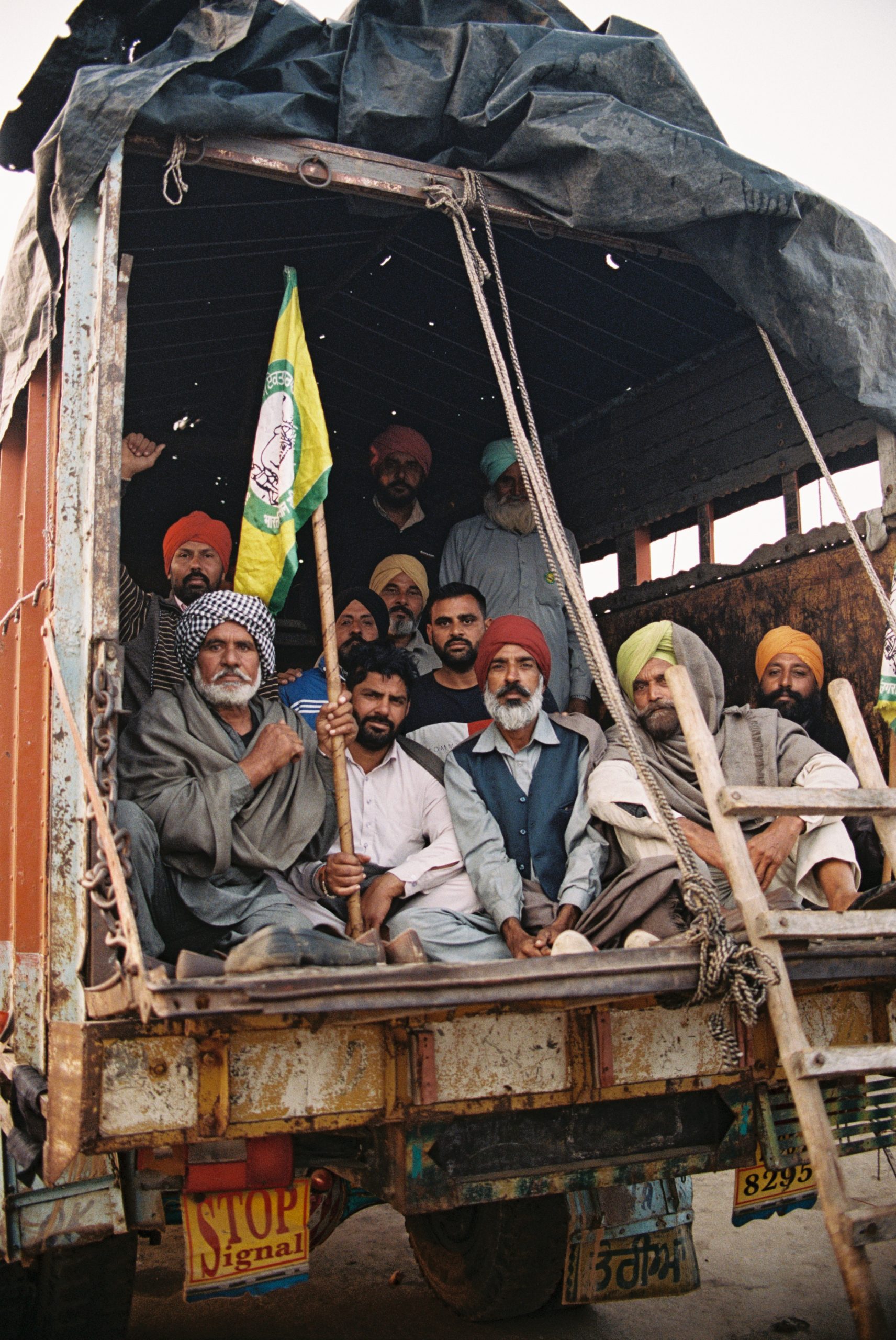
With the protest spanning nearly 10 miles in length, Hark1karan only saw part of the gargantuan unification of Indian farmers and civilians. Based at the Tikri border of New Delhi, he likened it to coming to London and “stopping off in Croydon”, seeing “every town from the south of England coming to pitch up”. But as the Sikh community photographer began documenting what was going on around him, he couldn’t help noticing how meek British protests looked by comparison.
“You really have to get out of the machine to make a change. These people just went to a site, took everything with them and set up camp”
For example, Punjabi singers were producing hundreds of protest songs which became anthems for the entire year. “Out here [in the UK] you don’t get stuff like that,” Hark1karan explains. “I just feel like people don’t actually care that much about things here.” He believes protests in the UK would never reach this level of commitment or dedication, because “we’re in this machine. It sounds like a cliché, but you really have to get out of it to make a change. These people just went to a site, took everything with them and set up camp. But here, there’s even rules about doing that.”
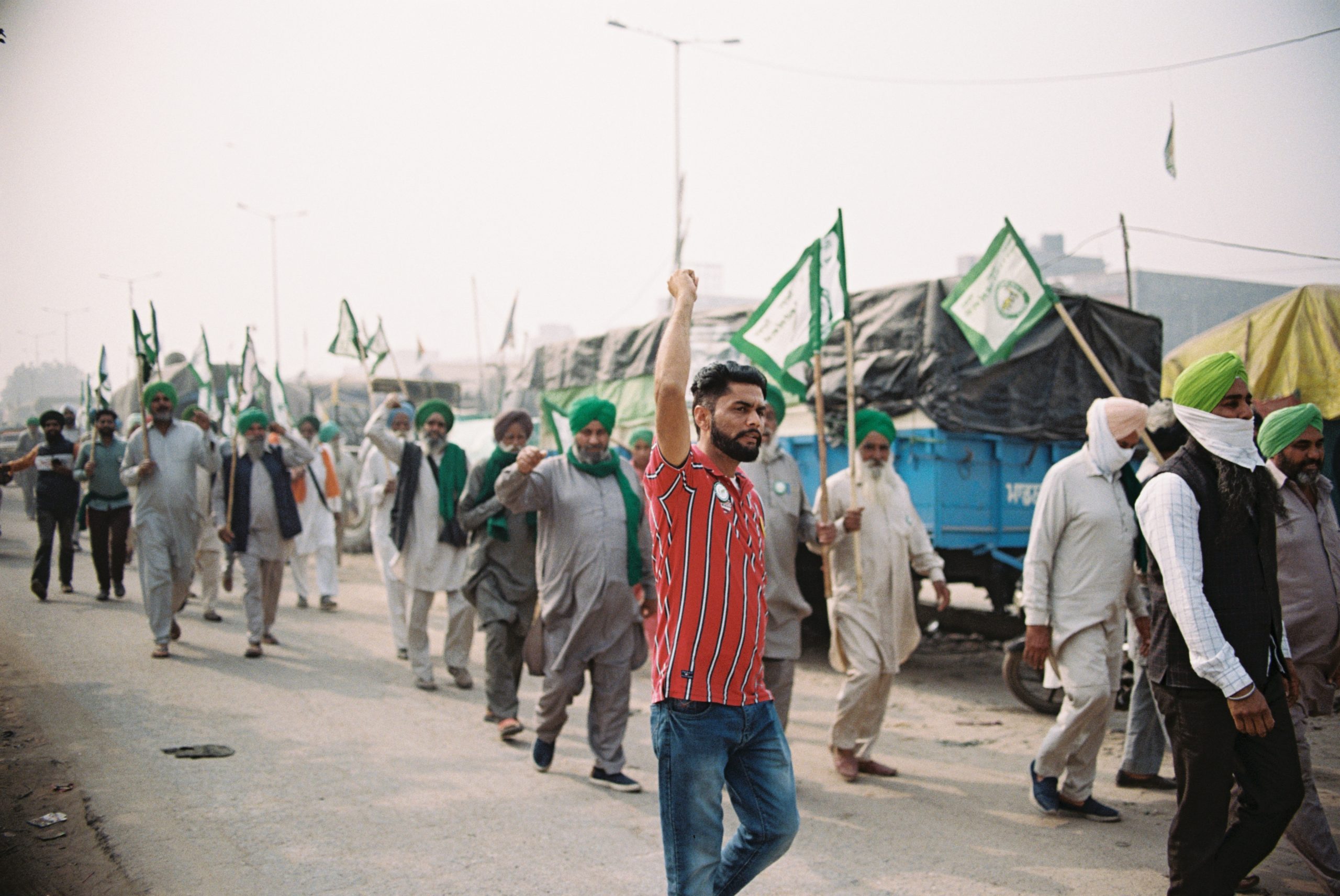
After witnessing the protest scenes, Hark1karan began to “feel that people [in the UK] could learn quite a few things. This is how you can organise.” He explains how the protests became almost a communal living project, with shared cooking for everyone on site, “not just going to Tescos and buying the food.” What’s more, the photographer claims it’s “for everyone”, not just the middle class. “It was poor people from the village, not people just reading random theory books at uni,” he argues. “I don’t think that protest is for everyone here That’s the problem.”
With a body of work largely dedicated to Sikh and Punjabi communities, both regional and diasporic, Hark1karan prefers to take a humanistic approach to image-making, as opposed to making a rigid notion of identity the foreground. “I document [Sikh] people because it’s a great way to show a human story.”
Dalia Al-Dujaili is digital editor of AZEEMA, founder and founding editor-in-chief of The Road to Nowhere
Kissan: The Farmers’ Protest 2021/22 by Hark1karan is out now (Hark1karan)
Images © Hark1karan, 2021
